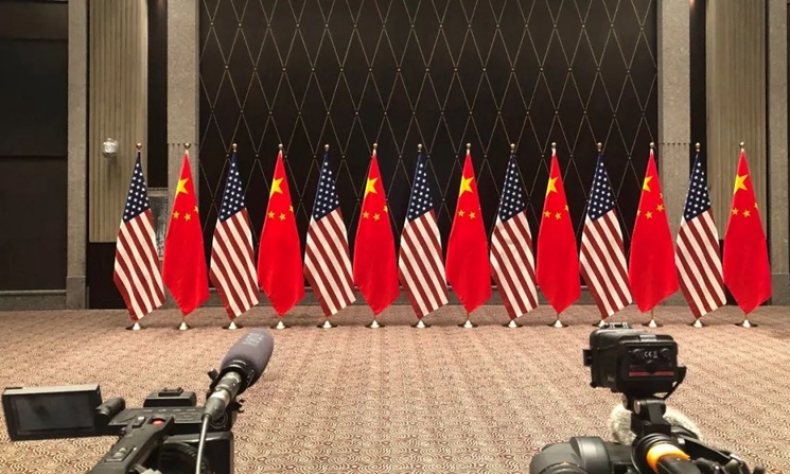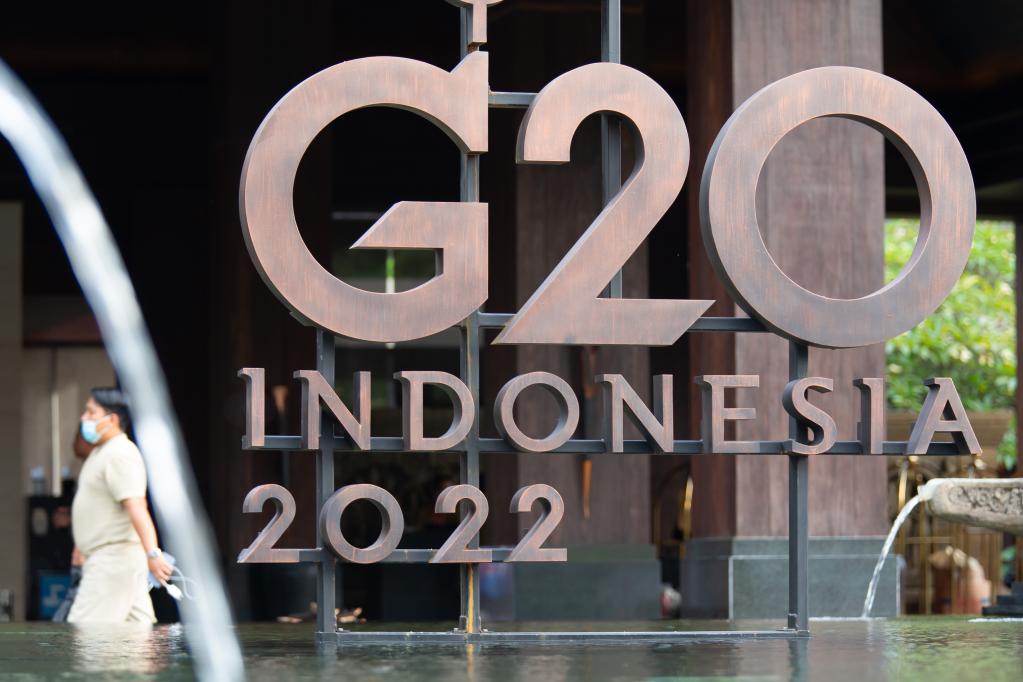A Thousand Reasons for Good Rapport

The Chinese often say that there are 1,000 reasons for a good Sino-American rapport and not one for a bad relationship. The same should be true on the U.S. side.
In early October, the bipartisan congressional delegation’s visit to China, led by United States Senate Majority Leader Chuck Schumer, probably did not receive much attention from the American public compared with the breaking domestic news that Kevin McCarthy became the first speaker of the House to be voted out of office in American history and the escalation of the Israeli-Palestinian conflict. But for China-U.S. relations, the visit, the fifth in a series of high-level exchanges between the countries since June, is obviously noteworthy.
This was the first time members of the U.S. Senate had visited China since 2019. In Beijing, the delegation, consisting of three Democrats and three Republicans, also had their expected talks with Chinese President Xi Jinping on October 9.
“China welcomes the visits of more U.S. Congress members to gain a better understanding of China’s past, present and future,” Xi said, adding that it is hoped that the two legislatures will have more interactions, dialogues and exchanges to increase mutual understanding and make a positive contribution to the stabilization and improvement of the China-U.S. relationship.
Given the high degree of integration between the Chinese and American economies and their closely intertwined interests, the two countries only benefit from each other’s development, he added, saying that post-pandemic global recovery, tackling climate challenges and resolving international and regional hot spots all require Sino-American coordination and cooperation.
Many political analysts believe that one of the important goals of the high-level exchanges between China and the U.S. this year is to achieve a friendly meeting between the leaders of the two countries during the Asia-Pacific Economic Cooperation (APEC) Economic Leaders’ Meeting in San Francisco, the U.S., from November 12 to 18, and put an end to the turbulence the bilateral relationship has seen in recent years. But lest we forget: When President Xi and U.S. President Joe Biden sat down for talks in Bali, Indonesia, on November 14 last year, the world also had high expectations for the warming of China-U.S. relations.
So what’s the real issue here?
The priority is to reduce the mistrust between the two sides. The dominant voice in China holds that the continuous deterioration of Sino-American relations is due to the inconsistency of American words and deeds.

During last year’s meeting in Bali, Biden reiterated the five American “do-nots” in the bilateral relationship, i.e., do not seek a new Cold War; do not seek to change China’s system; do not revitalize its alliances against China; do not support “Taiwan independence;” and do not seek conflict with China.
Many senior American officials claim that the U.S. does not seek conflict with China, nor does it seek to “decouple” from China when negotiating with their Chinese counterparts. But every time the Chinese think that relations have hit rock bottom and the only way is up, the American side creates a new crisis, especially in relation to the Taiwan question, China’s first red line—one that must not be crossed. Plus, whether it was the Chinese balloon that strayed into U.S. territory earlier this year or when McCarthy threatened to replicate his predecessor Nancy Pelosi’s provocative visit to China’s Taiwan region, the Biden administration has not succeeded in erasing the negative impact of these events on normal exchange between the two countries. In the end, the Chinese can no longer place trust in what U.S. officials say.
In addition, U.S. bipartisan politics now leads to a theater of the absurd: Politicians love to compete over which side talks tougher on China-related topics, sacrificing the national interest and stirring up public sentiment to score political points.
Moreover, under the American political system of separation of powers, the U.S. Constitution gives the president the status of representing the country in diplomacy, but in the practice of foreign policy, Congress wields a power that cannot be ignored.
Since 2017 especially, the Congress has led the White House by the nose on China policy, which has become one of the sources of instability in the Sino-American relationship. Given these circumstances, the relationship between the U.S. legislative body and Beijing is in desperate need of repair and reconstruction.
The Chinese often say that there are 1,000 reasons for a good Sino-American rapport and not one for a bad relationship. The same should be true on the U.S. side. Hopefully, the goodwill demonstrated by politicians on both sides will continue and eventually bear fruit, truly benefiting the people of both countries and the world at large.
 Facebook
Facebook
 Twitter
Twitter
 Linkedin
Linkedin
 Google +
Google +










